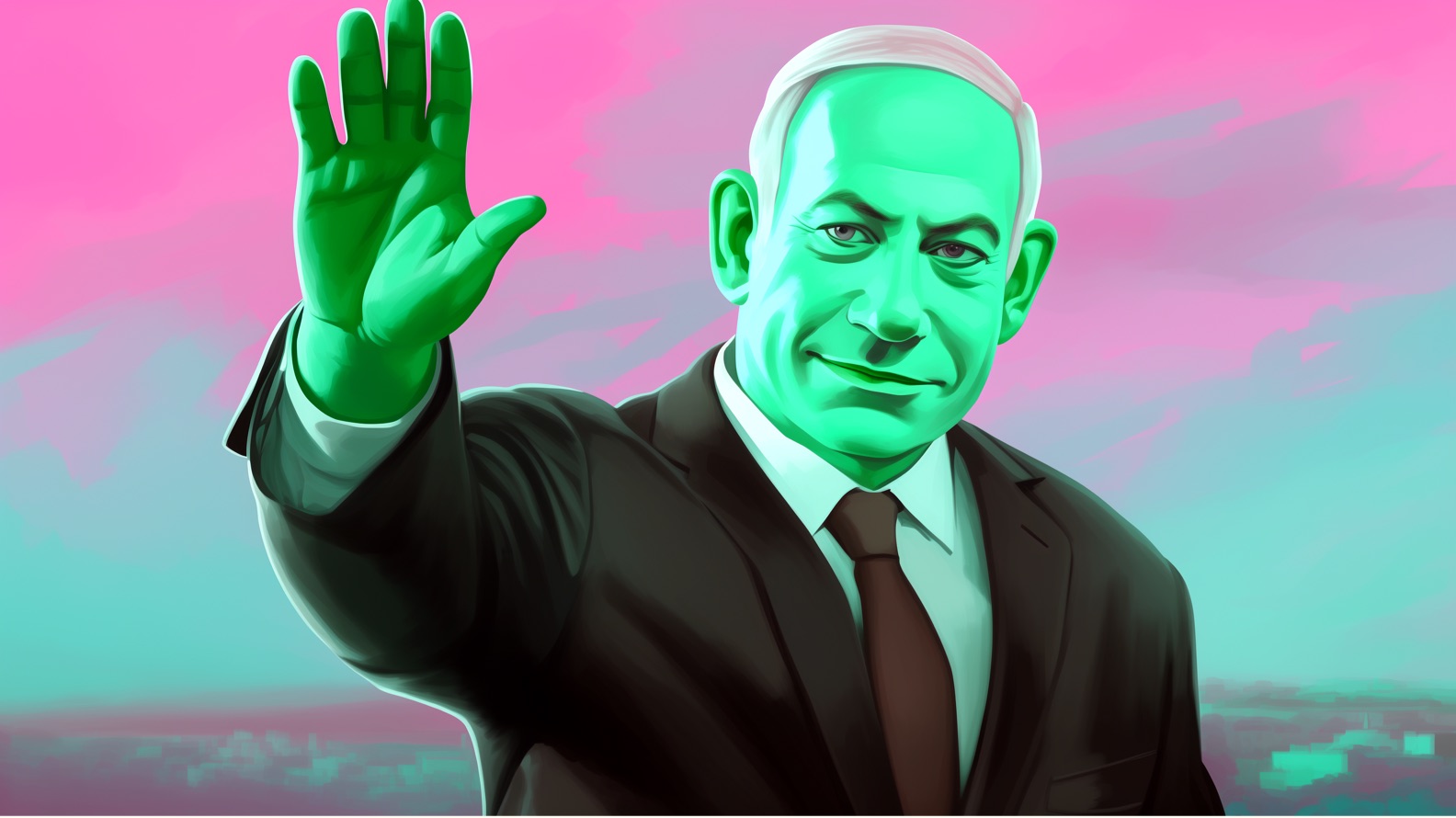Bibi's Blindness


What a disaster. After 30 years of Benjamin Netanyahu, Israelis and Jews across the world are in more danger than they've been in 75 years.
The self-proclaimed "Protector of Israel" steered the country to a point of great peril.
How did this happen? Through a series of strategic blunders.
Netanyahu made it his life's goal to prevent the establishment of a Palestinian State. He believed, not without merit, that such a state would be a base for constant attacks against Israel. Thus, he thought Israel should aspire to "manage" the conflict rather than resolve it.
And yet, by undermining the legitimacy of a Palestinian state, he also undermined the legitimacy of Israel itself.
Israel's critics around the world are no longer focused only on “the occupation” of 1967. Instead, they are questioning Israel’s right to exist.
Many of these people are antisemites who never gave Israel a chance. But many more are honest but misinformed individuals who are perplexed by this never-ending conflict and wonder whether there’s something fundamentally wrong with a Jewish state in the Middle East.
Ironically, the more Israel prospers, the more it seems like a “foreign transplant” in the region, and the harder it is to sympathize with it.
But Netanyahu was not only wrong about the conflict, he was wrong about many other things:
Netanyahu was wrong about America. The U.S. is not as strong or as willing to project power as it once was, at least not on its own. It is still a formidable ally, but it operates within a variety of external and internal constraints, including the emergence of new international rivals and alliances, persistent inflation and sensitivity to global oil prices, political polarization, and changing demographics.
Netanyahu was wrong about China. He encouraged investment and sought influence in China, hoping to benefit from Israeli technology and gain some diplomatic cover from an emerging superpower. But China is not the benevolent, pragmatic force he assumed it was. China seems intent on destroying the US-based global order and treats Israeli interests as collateral damage. China provides weapons, funding, and diplomatic cover to the worst of Israel's enemies, particularly Iran. It also supports and enables Russia, which, in turn, enables the military build-up on Israel's borders with Syria and Lebanon.
Netanyahu was wrong about Russia. It is now actively hostile to Israel and a military partner of Iran, despite Netanyahu's best efforts to avoid taking a clear position against its invasion of Ukraine or heeding President Zelenskyy’s request for military support.
Netanyahu was wrong about Israel's neighbors. Egypt, Jordan, Syria, and Lebanon are in a state of permanent crisis, with their governments threatened by restive Palestinian nationalists, Islamic fundamentalists, or both. Any flare-up of the Palestinian issue threatens to bring down the monarchy in Jordan and to bring back the Muslim Brotherhood to power in Egypt. Netanyahu thought he could "control the flames"; he couldn't.
Netanyahu was wrong about the Arab world. While leaders in countries such as Saudi Arabia, the UAE, and Bahrain see the benefits of normalizing relations with Israel, public opinion in these countries is, at best, suspicious of it. Any large-scale Israeli attack on Palestinian cities — whether justified or not — can trigger unrest that pushes these leaders away from Israel and even threatens their survival. Netanyahu led leaders in these countries to believe the Palestinians are a side issue and can be ignored. He was wrong.
Netanyahu was wrong about Iran. For years, he correctly pointed out that it poses the biggest threat to Israel's survival. But while he was drawing attention to Iran's nuclear program, he let it continue to fund and train a massive proxy army along Israel’s borders and beyond — in Lebanon, Syria, Gaza, Iraq, and Yemen. Now, Israel's ability to operate is constrained by tens of thousands of well-equipped warriors and hundreds of thousands of missiles and killer drones.
Netanyahu was wrong about Israel. He allowed a large minority of Orthodox Jews to avoid national service and expand a publicly-funded school system that does not teach basic math, English, and other skills required in a modern economy. He neglected and alienated an even larger minority of Israeli Arabs, diminishing their hopes of ever becoming fully integrated into Israel’s society and economy. He failed to nurture relations with millions of Jews around the world who cared deeply about Israel, even though they didn't always agree with his policies.
He empowered Israel's messianic settler movement. He thought he could ride and control them, but now — they control him. Some of the most radical people are now in charge of the Ministry of Finance, the Ministry of Homeland Security, and parts of the Ministry of Defense. Bibi depends on their votes and serves at their pleasure.
For decades, he fanned internal divisions and pitted Israelis against each other. In his own twisted mind, he thought this would make Israel stronger.
Netanyahu was wrong about technology. He underestimated the impact of the Internet on international affairs. Social media amplifies Israel’s enemies, constrains its allies, and crowds out any legitimate diplomatic efforts. Many of the two billion Muslims worldwide are now online, part of the global conversation. Leaders in the West and in the Arab world are subject to immense pressure from constituents who oppose Israeli military action, however justified.
And in a world dominated by tweets and short videos, prosperous Israel seems like a mighty oppressor when fighting against terrorists and guerilla warriors, and no one has the patience to grapple with the complexities of the Jewish struggle for survival. This does not mean that Israel can no longer act, but its actions come at a much higher cost.
Netanyahu was wrong about Netanyahu. Facing multiple criminal charges and undisclosed health issues, he thought he could continue to run Israel, undermine the legal system, and appoint incompetent cronies to key positions. While doing all this, he thought he'd be able to keep Israelis safe and navigate the country's daunting strategic environment.
He couldn't, he can't, and he must step down immediately. Israel is full of brilliant, well-meaning people who could step up and rebuild everything he destroyed.
And no, all this does not absolve the Palestinians of all their sins, failures, and mistakes over the years. But Israelis are masters of their own fate and deserve a leader who can deliver true security and peace. And not a moment too soon.
Dror Poleg Newsletter
Join the newsletter to receive the latest updates in your inbox.

